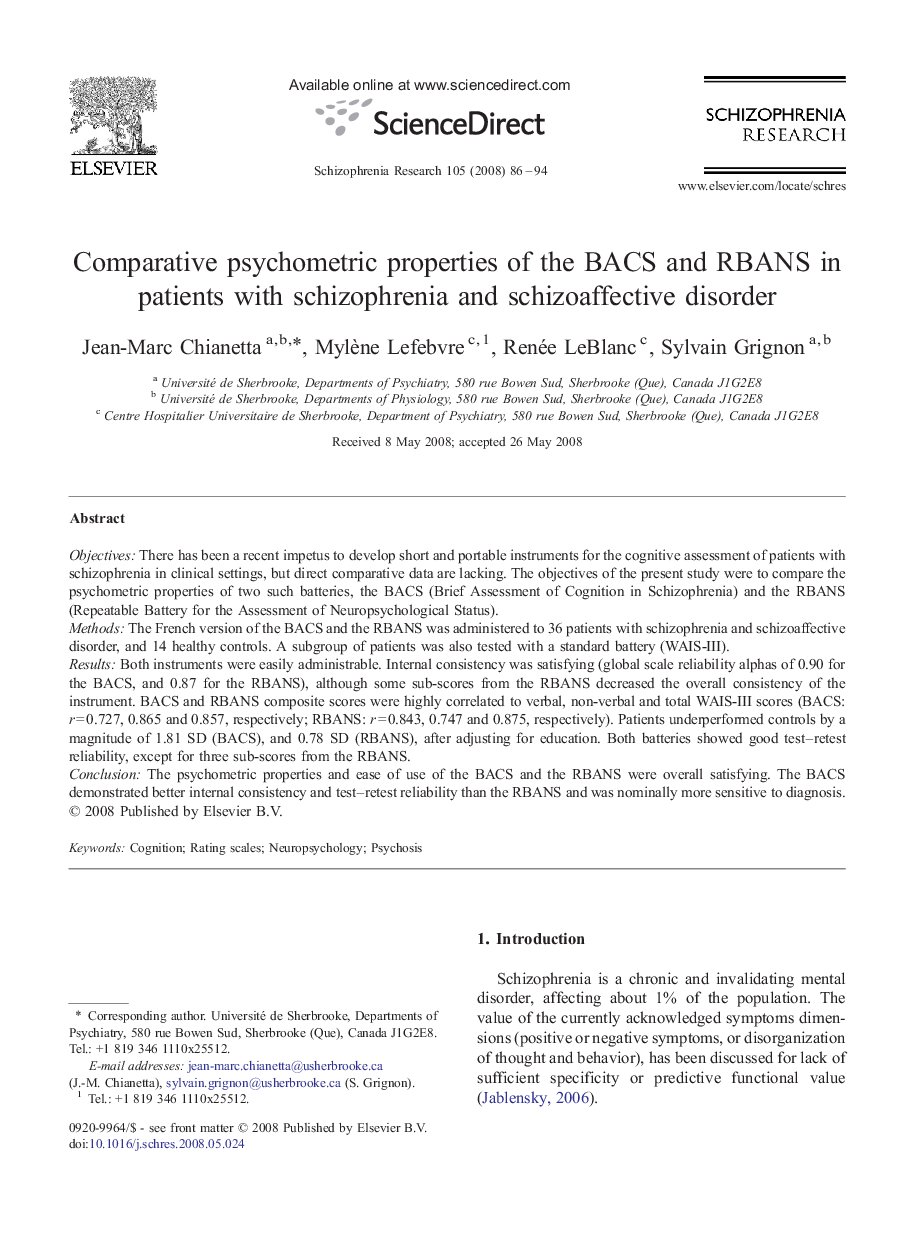| Article ID | Journal | Published Year | Pages | File Type |
|---|---|---|---|---|
| 338759 | Schizophrenia Research | 2008 | 9 Pages |
ObjectivesThere has been a recent impetus to develop short and portable instruments for the cognitive assessment of patients with schizophrenia in clinical settings, but direct comparative data are lacking. The objectives of the present study were to compare the psychometric properties of two such batteries, the BACS (Brief Assessment of Cognition in Schizophrenia) and the RBANS (Repeatable Battery for the Assessment of Neuropsychological Status).MethodsThe French version of the BACS and the RBANS was administered to 36 patients with schizophrenia and schizoaffective disorder, and 14 healthy controls. A subgroup of patients was also tested with a standard battery (WAIS-III).ResultsBoth instruments were easily administrable. Internal consistency was satisfying (global scale reliability alphas of 0.90 for the BACS, and 0.87 for the RBANS), although some sub-scores from the RBANS decreased the overall consistency of the instrument. BACS and RBANS composite scores were highly correlated to verbal, non-verbal and total WAIS-III scores (BACS: r = 0.727, 0.865 and 0.857, respectively; RBANS: r = 0.843, 0.747 and 0.875, respectively). Patients underperformed controls by a magnitude of 1.81 SD (BACS), and 0.78 SD (RBANS), after adjusting for education. Both batteries showed good test–retest reliability, except for three sub-scores from the RBANS.ConclusionThe psychometric properties and ease of use of the BACS and the RBANS were overall satisfying. The BACS demonstrated better internal consistency and test–retest reliability than the RBANS and was nominally more sensitive to diagnosis.
